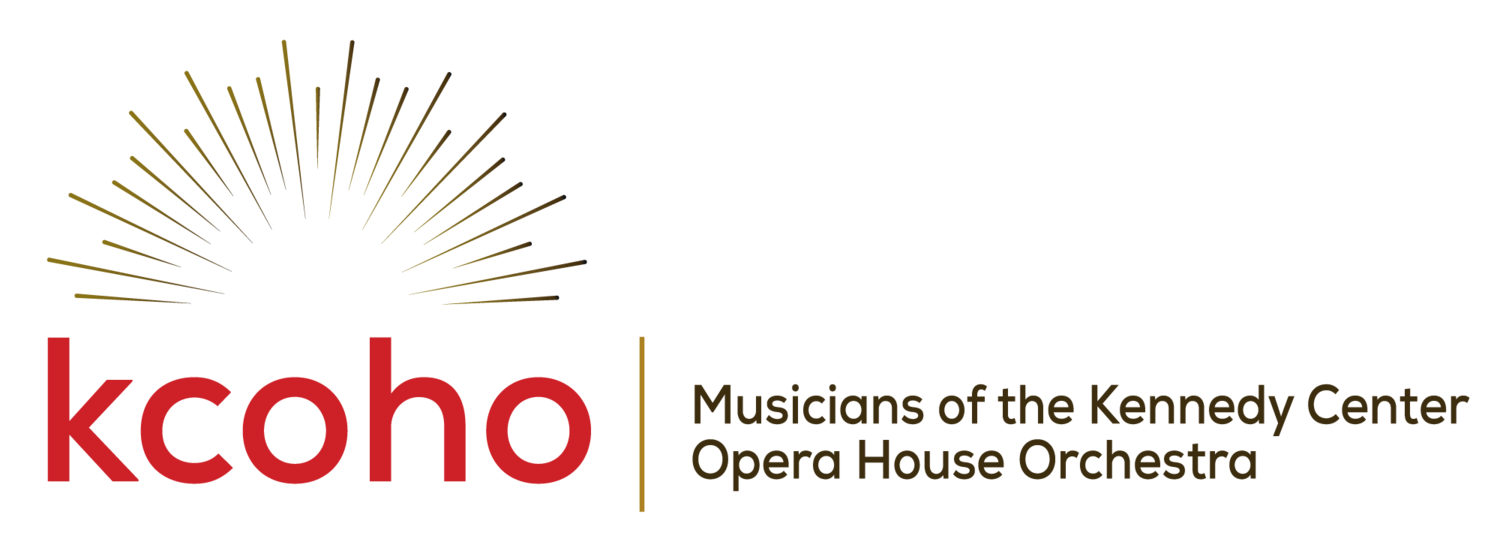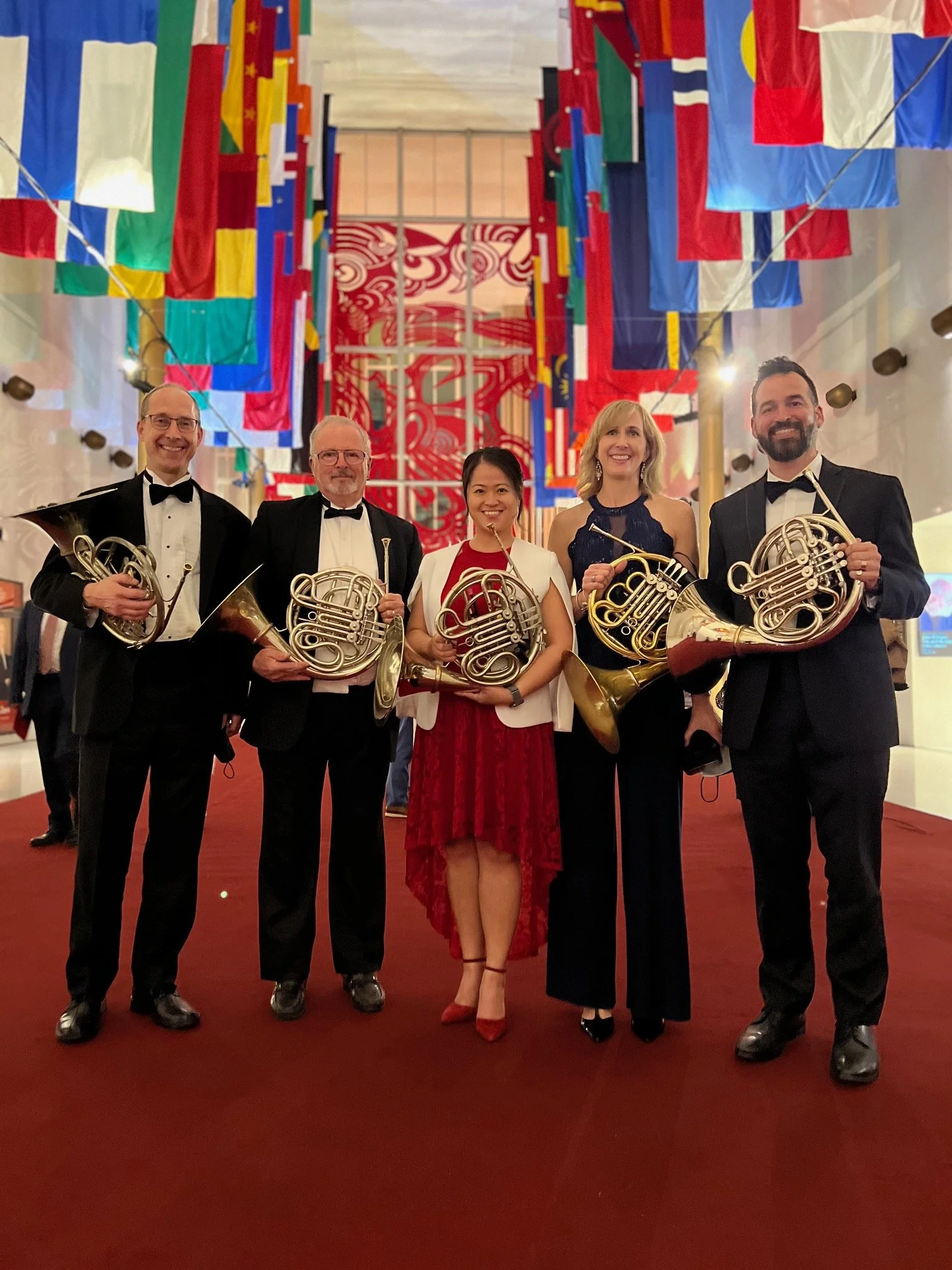Peter de Boor: Our Mathematical Musician (…or musical mathematician?)
Beyond playing French Horn, Peter de Boor has served the WNO Orchestra and the music world in many ways in his 26 years with the WNO. He was a Governing Board member, convention delegate and newsletter editor for the International Commission of Symphony and Opera Musicians (ICSOM), performed several roles with the local Musicians Union, and served on the WNO Orchestra Committee for 24 seasons, 10 of those as committee chair. Additionally, he administers the orchestra’s health and benefits fund. We asked Peter about his unusual career trajectory, and his remarkable kids.
Peter (far left) and section mates in the Hall of Nations
Tell us about your pre-WNOO history
I earned mathematics degrees from Princeton, Cambridge University, and the University of Chicago, all of which had excellent student orchestras. At Cambridge, for example, I was involved in one or two concerts most weekends. I've met some of those fellow students again later in life—Martin West, a British cellist with whom I performed as a student, is now the music director of the San Francisco Ballet, and the WNO Orchestra has worked with him several times. But I found myself lacking motivation while immersed in my studies for a PhD in mathematics. I took inspiration from my high school friend and horn-quartet colleague Anne Scharer (now in the Metropolitan Opera Orchestra) and decided to give a career in music a go. I got a master's degree from the University of Michigan, spent a year playing in an orchestra in Mexico (in Toluca, at an altitude of almost 9000 feet, which was a challenge as a horn player!) and free-lanced in Michigan.
It’s a truism that music and math are connected. Any thoughts on that, and on how different your career might have been?
I think many people think of mathematics being solely about numbers. It’s true that rhythm is just fractions, and time signatures are literally numbers. But mathematics is really more about patterns, and music is replete with those. Being a mathematician is a bit like being a composer—creating/discovering things that are new. An instrumental musician is more akin to a math teacher, illuminating for an audience that which has already been discovered by others.
What role, if any, does math play in your (mostly musical) life?
While I have taught horn students, currently all of my teaching is in math, with students ranging from middle school to college.
Another truism: The apple doesn’t fall far from the tree. Your three extraordinary kids all studied music and/or STEM. What are they up to now?
My eldest, now 26, works as a programmer for a company, Jane Street, that considers itself to be equal parts tech company and financial trading firm. He enjoys giving me mathematical puzzles to solve, although they tend to be more like computer science puzzles, at which I am less successful. My second, 22, just graduated from Oberlin Conservatory with degrees in Violin and Viola Performance. Their string quartet, the Poiesis Quartet, recently won the Grand Prize at the Fischoff Competition, a major chamber music competition. My youngest, 20, is in her last year at Northwestern, majoring in biomedical engineering, with minors in computer science and data science. She was for a time pursuing a second degree in bassoon performance, but that proved excessive, despite her love for the instrument, which she studied with our own Assistant Principal Bassoon Chris Jewell.
Jasper deBoor (3rd from left) during the Grand Prize-winning performance at the Fischoff Competition
Malva de Boor at her first bassoon lesson with Chris Jewell



